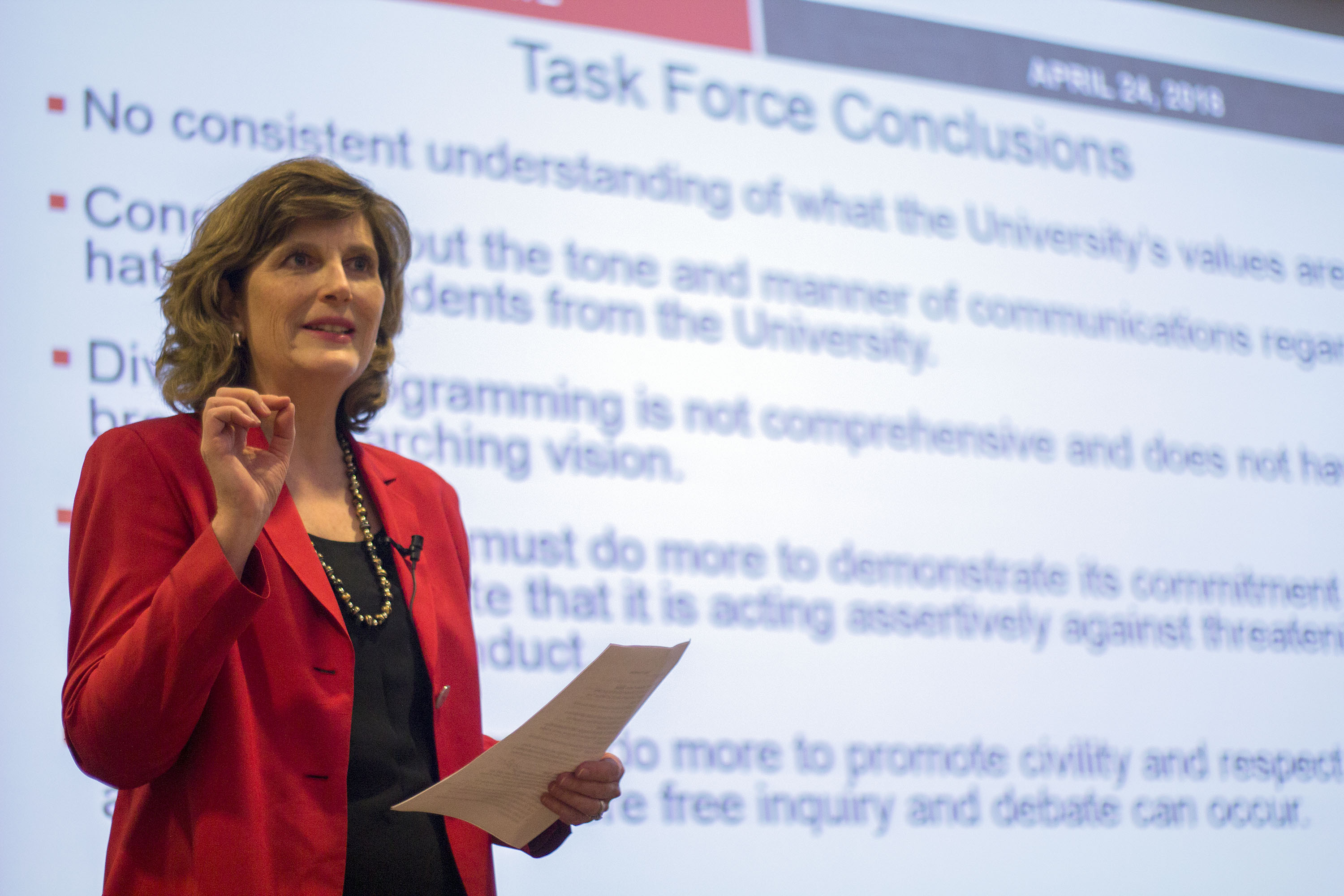Views expressed in opinion columns are the author’s own.
It has been almost a year since 2nd Lt. Richard Collins was fatally stabbed at the University of Maryland, almost half a year since the university announced there had been 27 hate bias incidents reported between the beginning of the 2017 fall semester and Dec. 8, and a week and a half since university officials announced they wouldn’t disclose the results of their investigation into a noose found in a fraternity house.
And April 24, this university’s Senate voted to send university President Wallace Loh a set of proposals, crafted by the Joint President and University Senate Inclusion and Respect Task Force, to prevent hateful incidences like these from rooting in campus culture. His response to the recommendations is expected in the next two weeks.
[Read more: UMD Senate approves diversity task force recommendations]
It’s a nice gesture, but this policy development is blatantly delayed — the same way most responses to this university’s hate bias problems have been. Platitudes about commitments to inclusion and safety on this campus have little weight compared to the fear, tension and incremental desensitization that hits students as soon as hate bias incidents are reported. Those affirmations of diversity and community end up being undermined by how tone deaf they are when they finally arrive.
This university consistently misses the opportunity to reassure students in the moments they need it. It’s hard to believe in administrative promises of action and change, because resolution comes after months of hidden dialogue and obscure methods. Often, the resolution is a set of sloppy, quoted condolences.
And not only does this university’s administration fail to deliver timely responses — it often fails to deliver them right the first time. Officials have told us this university is “not a home” in response to students asking for a campuswide ban of hate symbols. They have expounded on the importance of having dialogues with the community, yet failed to personally engage in them. They’ve been defensive of their commitment to diversity, without considering some of this university’s visible failings at that.
It all creates an expected pattern that leads to a continuing culture of mistrust between students and administrators. It isn’t evident administrators have learned anything from past miscommunications, or that they know what to change going forward. The discussion around these new recommendations doesn’t give much hope for that changing.
One of the proposals by the Inclusion and Respect Task Force — which includes administrators, faculty and some students, among others — was about creating a values statement to, in the words of co-chair Lucy Dalglish, “[urge] members of the campus community to consider the harm their speech can cause.” This sounds like a codification of what the university already does: throw out the same set of buzzwords concerning community, commitment to change and inclusivity that we’ve become as desensitized to as the hate bias incidences themselves.
The proposals focus a lot on efforts of community education and communication, but it feels a little disingenuous when it’s been entirely the university community who has responded to hate bias in any meaningful way. The gap of time without communication from the university is filled by the students’ solidarity.
[Read more: UMD community members sound off at first diversity task force open forum]
Student efforts have led to legislation mandating every public college in Maryland develop a hate bias prevention plan. A coalition of student groups made 64 recommendations to this university about how it could better serve its marginalized students. A student pushed to have the bus stop Collins was stabbed at converted to a memorial. All these actions show how consequential hate bias incidents are to the student body.
Students have clearly been thinking about hate and intolerance a lot, and they’re doing their part to make changes. It’s the absence of an administrative response that gives this university a reputation.
These recommendations are disappointing because they’re not changing any significant dynamics. The real hard work and culture shift will continue to come from the student body while administration will sit on the issues and claim the students’ achievements as their own.
Sona Chaudhary, opinion editor, is a sophomore English and geology major. She can be reached at sonachaud@gmail.com.



